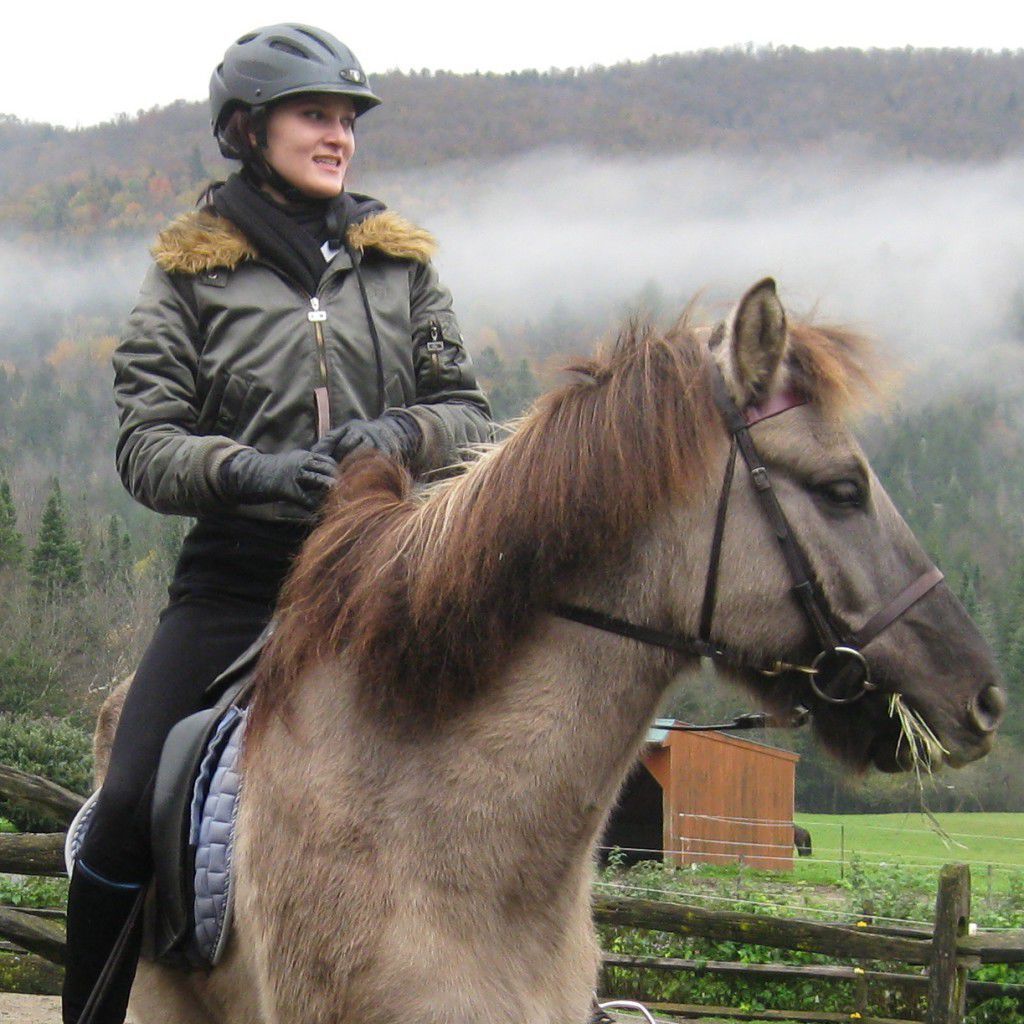Icelandic is not like chicken
by Patricia Ochman
My initial reason for taking on Icelandic was pretty pragmatic: I had started riding Icelandic horses and purchased a friendly Icelandic gelding, Léttfeti. I felt that picking up some Icelandic would allow me to get access to a treasure chest of information about my favorite breed and help me better understand my Icelandic best friend.
I took on a uTalk challenge and started learning Icelandic. Since I know Danish, I figured, how hard could it be? I would have this down in 30 days, no problem.
Well, fruits and vegetables were fine… but then it got thorny. Very thorny, very fast. Icelandic, it turns out, is not that similar to Danish. My initial enthusiasm turned into frustration because I thought this was supposed to be easy. Why were there three genders, four declensions, unusual pronunciation, weird words in weird places?
I gave up. It was too complicated, too different. Sorry Léttfeti, we’ll have to stick to English.
Until one day, I remembered that when I was younger, I refused to learn declensions in Polish because English and French (languages I already spoke) had no declensions. That’s when my teacher said, “That’s just the way it is; Polish has declensions and you’re going to have to learn them.” That response later resonated in my head when my Latin teacher made us repeat “rosa, rosam, rosae, …”. That’s just the way it is in Latin, I thought. I learned Polish and I learned Latin and I accepted declensions. I even started thinking that declensions add richness to a language, just like the pluperfect subjunctive tense adds richness to French.
Later on, I learned Finnish and because I had been told that Finnish is unlike any other European language, I just started from scratch, not assuming I would know anything at all. Hyvää päivää, olen Patricia. It went well and I progressed at a satisfying pace. It was unfamiliar and beautiful.
So then, why was I so frustrated with Icelandic? Could it be that my frustration had nothing to do with the language and everything to do with the fact that I was trying to fit a square peg in a round hole? It is certainly a very comforting feeling to think that something that is new to us is similar to something we already know. After all, we are regularly told “try it, it tastes just like chicken”… But doesn’t that just defeat the whole purpose of trying something new? How about “try it, it’s nothing like chicken, it’s totally unique and your mind may just be blown”?
I was trying to make Icelandic seem similar to something I already knew when it really wasn’t, and that’s what hindered my progress. I tried to put myself in the same mindset I had for Finnish and just told myself that this would be different. I’d have to let go of the buoy I was apparently desperately hanging on to and I’d simply have to embrace Icelandic for all its… well, Icelandicness.
I started focusing on the things I already knew in and about Icelandic and built on that. I tried to figure out its internal logic, its particularities, its flow. I started repeating out loud the words and sentences I learned and slowly made sense of them. Eyjafjallajökull is really not that scary when you understand that it’s just a juxtaposition of “islands”, “mountains” and “glacier”. Icelandic started to make sense and I started loving it. I’m still a beginner, but I’m now an excited beginner, unafraid of straying from what I already know. Vel gert!
I believe learning languages expands one’s mind, and this may be a reason why. Learning a new language means getting out of that familiar English, French, German, etc. playpen and discovering new ways of organizing and expressing thoughts. Scary at first, sure, but oh how rewarding.

